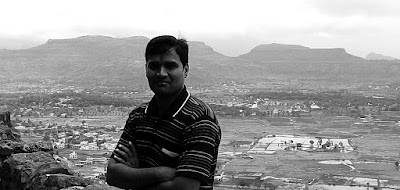Karla Caves कार्ले लेणी & Ekveeradevi Temple


About Caves:
These caves are carved almost 2000 years ago around the 2nd century belongs of Buddhist religion.
This place has a collection of Chaityas (halls) and Viharas (monasteries). narrating some stories of Lord Buddha. A temple made of pillars from the Buddhist period has also been built recently at the entrance of the caves.
The Ekvira Aai Temple is a Hindu temple located to the side of these caves. The Ekviradevi is Goddess of the Aagri-Koli community and other communities of Hindus.
The site had religious importance for Hindus and Buddhist.
The site is maintained by Archaeological Survey of India.
These caves are carved almost 2000 years ago around the 2nd century belongs of Buddhist religion.
This place has a collection of Chaityas (halls) and Viharas (monasteries). narrating some stories of Lord Buddha. A temple made of pillars from the Buddhist period has also been built recently at the entrance of the caves.
The Ekvira Aai Temple is a Hindu temple located to the side of these caves. The Ekviradevi is Goddess of the Aagri-Koli community and other communities of Hindus.
The site had religious importance for Hindus and Buddhist.
The site is maintained by Archaeological Survey of India.

Visiting Time : 9 a.m to 6 p.m.
How to Reach :
About 75 km from Pune. Travel time approx. 90 mins.
By road - Pune - Go on Bangalore - Mumbai Old Highway - Proceed to Mumbai direction - Dehuroad - Talegaon - Vadgaon - Kamshet - 70 k.m. - Take right turn to Karla Caves/Ekvira Devi Temple road - Bhaje village -Park vehicle here
By train - Take Pune - Lonavla Local train - get down on Malavli station - walk to Karla caves about 1 km.
About 75 km from Pune. Travel time approx. 90 mins.
By road - Pune - Go on Bangalore - Mumbai Old Highway - Proceed to Mumbai direction - Dehuroad - Talegaon - Vadgaon - Kamshet - 70 k.m. - Take right turn to Karla Caves/Ekvira Devi Temple road - Bhaje village -Park vehicle here
By train - Take Pune - Lonavla Local train - get down on Malavli station - walk to Karla caves about 1 km.
Parking :
There is entry fees collected by local administration per vehicle.
There is paid parking provided at base for buses.
Cars and bikes can go even up midway.
Stay :
There is home-stays at nearby villages.
Many hotels are there at the base of Karla caves including MTDC hotels.
Even hotels are available at Lonavla and Khandala which is hardly 5/7 km from Bhaje caves.
Food : There are many restaurants Veg-Nonveg hotels at the base & Parking.
Small restaurants are there on the steps ascend and at the near the entry gate.
There is entry fees collected by local administration per vehicle.
There is paid parking provided at base for buses.
Cars and bikes can go even up midway.
There is home-stays at nearby villages.
Many hotels are there at the base of Karla caves including MTDC hotels.
Even hotels are available at Lonavla and Khandala which is hardly 5/7 km from Bhaje caves.
Food : There are many restaurants Veg-Nonveg hotels at the base & Parking.
Small restaurants are there on the steps ascend and at the near the entry gate.
What to See :
There is entry fee and charges for camera.
You need to climb up on steps about 20/30 mins to reach top where caves are situated. Steps are carved and maintained.
There are Chaitygruha, vihar , Stupas and carved statues and stories of Lord Buddha and Jataka tells.

Nearby Places : Lohgad, Visapur, Pavna Dam, Lonavla, Khandala, Bhaje cave, Bedse caves, Tung-Tikona fort















































